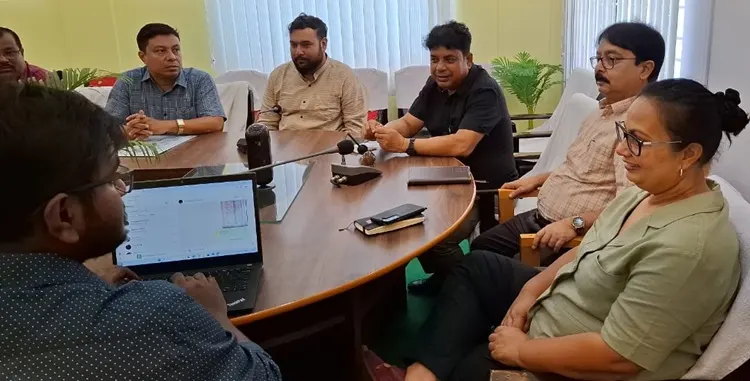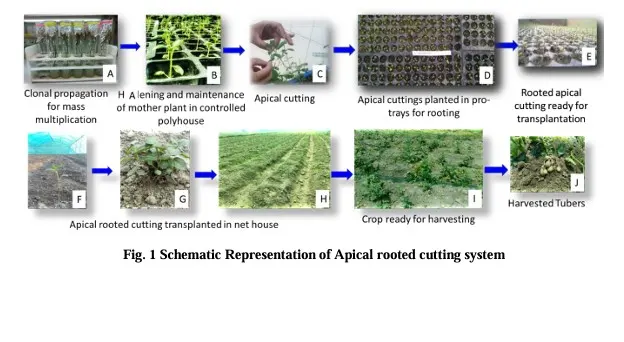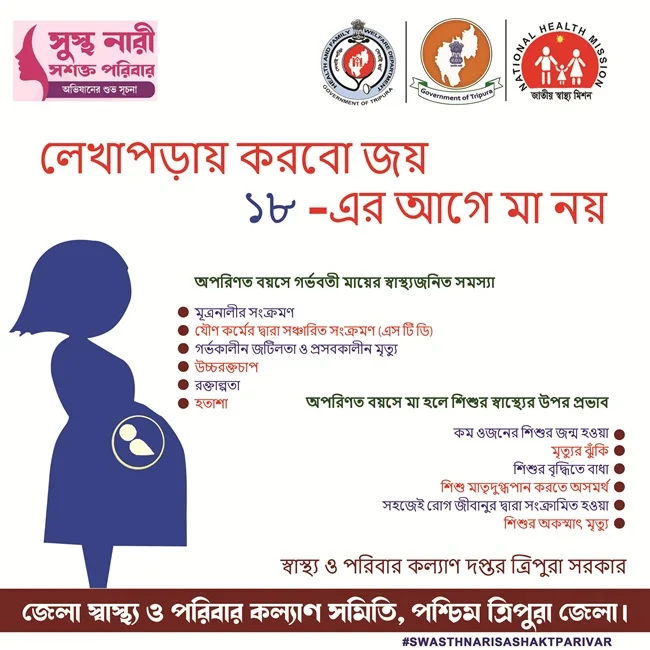Agartala, October 30, 2025: The state of Tripura is gearing up for a major agricultural milestone as work is underway to cultivate potatoes using the Apical Rooted Cutting – ARC Potato technology with nearly 5,000 farmers participating this year. The announcement came after a high-level meeting held at the State Horticulture Research Station in Nagichhara, near Agartala.
The meeting was attended by Deepak Kumar Das, Director of the Department of Horticulture and Soil Science; Dr. Rajiv Ghosh, Head of the State Horticulture Research Station; and Dr. Kalpana Sharma, Scientist at the International Potato Research Center (CIP), Peru, along with officials from several organizations engaged in ARC Potato farming.
This initiative aims to enhance the cultivation techniques and yield quality of ARC Potato across the region.

Expanding ARC Potato Cultivation Across Tripura
Dr. Rajiv Ghosh informed that Tripura has achieved notable success in ARC-based potato cultivation over the past two years. Building on that success, the state plans to significantly expand the project in the upcoming Rabi season.
“In the first year, only 100 farmers adopted ARC technology, while in the second year, around 400 farmers participated. This year, we are scaling up to 5,000 farmers, marking a major step forward,” Dr. Ghosh said.
The Tripura Watershed Development Agency (TWDA), Rashtriya Krishi Vikas Yojana (RKVY), and MOVDCR North-East Region, which promotes organic farming, are the three main organizations leading the implementation. TWDA is preparing around 900 hectares for potato cultivation, while RKVY will assist around 4,000 farmers under the ARC system.
What is the ARC Potato Technology?
The Apical Rooted Cutting (ARC) system is a scientific method of potato seed production developed through tissue culture. It involves producing rooted transplants—known as ARCs—from juvenile mother plants grown under controlled conditions. These ARCs are disease-free and virus-free, serving as superior planting material equivalent to nucleus seed (G0).

The process is faster, cost-effective, and capable of producing 10–25 seed tubers per plant, compared to just 5–10 in the conventional system. According to research from the International Potato Center, one microplant can produce six to eight rooted cuttings, making the ARC system highly efficient and economical for smallholder farmers.
ALSO READ: https://skylinktimes.in/tripura-scientist-dr-ray-director-rubber-research-institute/
Benefits of ARC System
Experts highlight several advantages of the ARC-based potato seed production system:
- Disease-Free Seeds: Since ARCs are developed from tissue-cultured mother plants, they remain free from common potato viruses and pathogens.
- High Multiplication Rate: The technique allows rapid scaling, reducing dependency on imported or costly certified seeds.
- Reduced Production Time: The time to produce certified seeds can be shortened from 9–10 years to just 4–5 years.
- Higher Yield and Lower Cost: Farmers can achieve greater productivity at lower input costs, making potato farming more profitable.
Dr. Kalpana Sharma from CIP emphasized that ARC Potato technology enables even small farmers to participate in seed production, ensuring better income opportunities and contributing to Tripura’s food security.
A Step Toward Agricultural Innovation
With the ARC system gaining momentum, Tripura is positioning itself as a model state for innovative potato cultivation in northeastern India. The seed materials are expected to reach the fields within the next 10 to 15 days, marking the start of a large-scale project aimed at transforming the state’s potato sector.
For More Info Stay Tuned: https://skylinktimes.in



